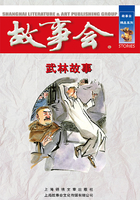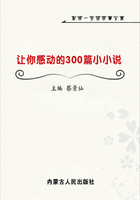His life had been in danger. He had passed years in a prison. He was now free: but this did not content him: he wished to be again great. Attached as he was to the Anglican Church, hostile as he was to the French ascendency, he could not hope to be great in a court swarming with Jesuits and obsequious to the House of Bourbon. But, if be bore a chief part in a revolution which should confound all the schemes of the Papists, which should put an end to the long vassalage of England, and which should transfer the regal power to an illustrious pair whom he had united, he might emerge from his eclipse with new splendour. The Whigs, whose animosity had nine years before driven him from office, would, on his auspicious reappearance, join their acclamations to the acclamations of his old friends the Cavaliers. Already there had been a complete reconciliation between him and one of the most distinguished of those who had formerly been managers of his impeachment, the Earl of Devonshire. The two noblemen had met at a village in the Peak, and had exchanged assurances of good will. Devonshire had frankly owned that the Whigs had been guilty of a great injustice, and had declared that they were now convinced of their error. Danby, on his side, had also recantations to make. He had once held, or pretended to hold, the doctrine of passive obedience in the largest sense. Under his administration and with his sanction, a law had been proposed which, if it had been passed, would have excluded from Parliament and office all who refused to declare on oath that they thought resistance in every case unlawful. But his vigorous understanding, now thoroughly awakened by anxiety for the public interests and for his own, was no longer to be duped, if indeed it ever had been duped, by such childish fallacies. He at once gave in his own adhesion to the conspiracy. He then exerted himself to obtain the concurrence of Compton, the suspended Bishop of London, and succeeded without difficulty. No prelate had been so insolently and unjustly treated by the government as Compton; nor had any prelate so much to expect from a revolution: for he had directed the education of the Princess of Orange, and was supposed to possess a large share of her confidence. He had, like his brethren, strongly maintained, as long as he was not oppressed, that it was a crime to resist oppression; but, since he had stood before the High Commission, a new light had broken in upon his mind.419Both Danby and Compton were desirous to secure the assistance of Nottingham. The whole plan was opened to him; and he approved of it. But in a few days he began to be unquiet. His mind was not sufficiently powerful to emancipate itself from the prejudices of education. He went about from divine to divine proposing in general terms hypothetical cases of tyranny, and inquiring whether in such cases resistance would be lawful. The answers which he obtained increased his distress. He at length told his accomplices that he could go no further with them. If they thought him capable of betraying them, they might stab him; and he should hardly blame them; for, by drawing back after going so far, he had given them a kind of right over his life. They had, however, he assured them, nothing to fear from him: he would keep their secret; he could not help wishing them success; but his conscience would not suffer him to take an active part in a rebellion. They heard his confession with suspicion and disdain.
Sidney, whose notions of a conscientious scruple were extremely vague, informed the Prince that Nottingham had taken fright. It is due to Nottingham, however, to say that the general tenor of his life justifies us in believing his conduct on this occasion to have been perfectly honest, though most unwise and irresolute.420The agents of the Prince had more complete success with Lord Lumley, who knew himself to be, in spite of the eminent service which he had performed at the time of the Western insurrection, abhorred at Whitehall, not only as a heretic but as a renegade, and who was therefore more eager than most of those who had been born Protestants to take arms in defence of Protestantism.421During June the meetings of those who were in the secret were frequent. At length, on the last day of the month, the day on which the Bishops were pronounced not guilty, the decisive step was taken. A formal invitation, transcribed by Sidney but drawn up by some person more skilled than Sidney, in the art of composition, was despatched to the Hague. In this paper William was assured that nineteen twentieths of the English people were desirous of a change, and would willingly join to effect it, if only they could obtain the help of such a force from abroad as might secure those who should rise in arms from the danger of being dispersed and slaughtered before they could form themselves into anything like military order. If his Highness would appear in the island at the head of some troops, tens of thousands would hasten to his standard. He would soon find himself at the head of a force greatly superior to the whole regular army of England.
Nor could that army be implicitly depended on by the government.
The officers were discontented; and the common soldiers shared that aversion to Popery which was general in the class from which they were taken. In the navy Protestant feeling was still stronger. It was important to take some decisive step while things were in this state. The enterprise would be far more arduous if it were deferred till the King, by remodelling boroughs and regiments, had procured a Parliament and an army on which he could rely. The conspirators, therefore, implored the Prince to come among them with as little delay as possible. They pledged their honour that they would join him; and they undertook to secure the cooperation of as large a number of persons as could safely be trusted with so momentous and perilous a secret.















